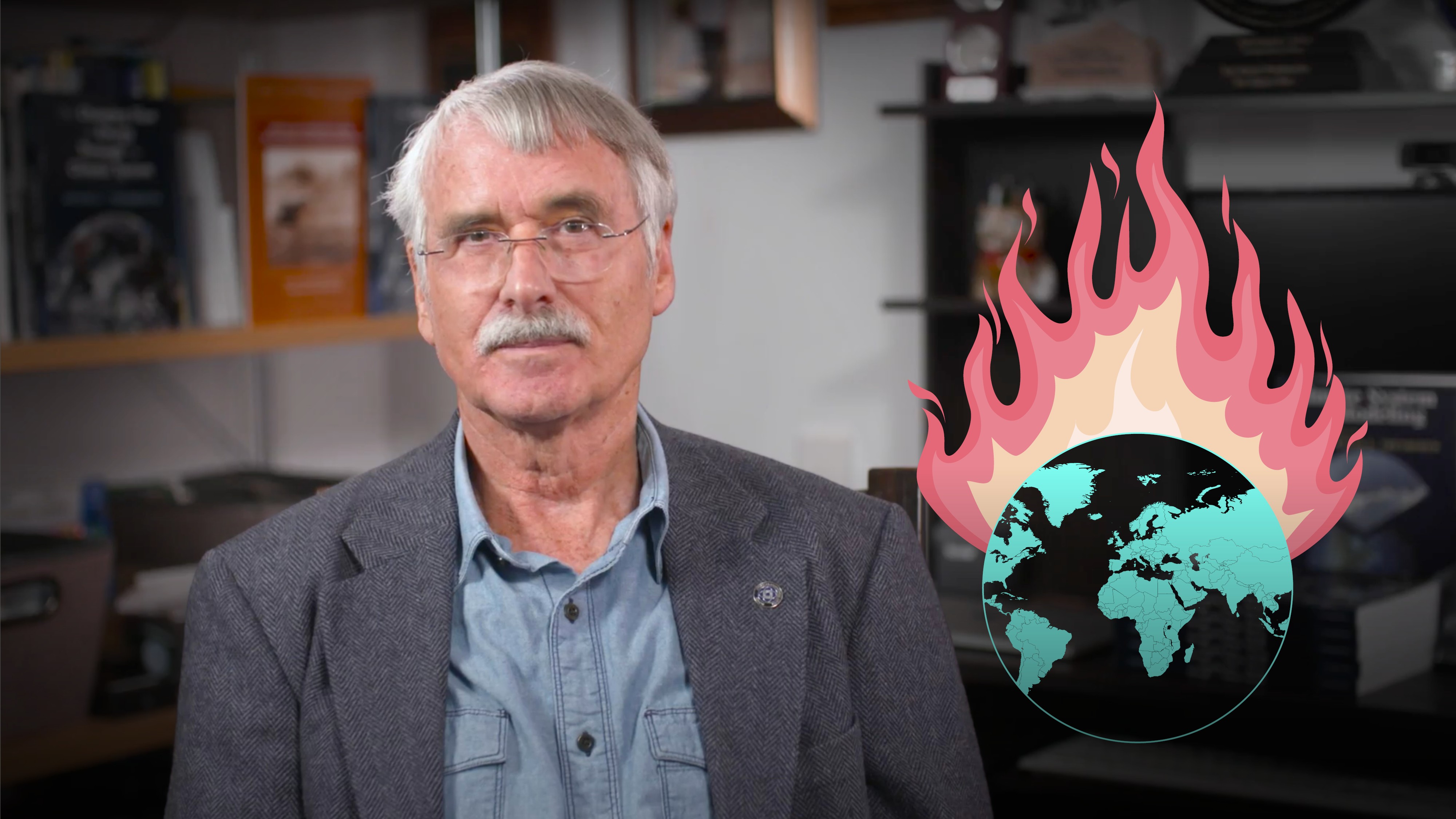
1.5°C vs 2°C Global Warming

Kevin Trenberth
Former Coordinating Lead Author of the IPCC
It is crucial to limit and slow down global warming, and this cannot be emphasised enough. Every small increase in temperature is accompanied by a corresponding increase in hot extremes, severe storms, droughts, rising oceans etc. Join Kevin, as he talks us through the importance of rates of change vs one-off climate events, along with the differences the planet will see at 1.5 vs 2 degrees of warming.
It is crucial to limit and slow down global warming, and this cannot be emphasised enough. Every small increase in temperature is accompanied by a corresponding increase in hot extremes, severe storms, droughts, rising oceans etc. Join Kevin, as he talks us through the importance of rates of change vs one-off climate events, along with the differences the planet will see at 1.5 vs 2 degrees of warming.
It is clear climate change is having an impact on the planet, every year climate events seem to get bigger and last longer. An IPCC report highlighted the importance of attempting to limit warming to 1.5 degrees vs 2 degrees. With every incremental increase in temperatures, we see increased hot extremes, more extreme storms, worsening droughts, rising oceans, loss of species, food shortages, health risks and increased poverty and displacement. It is imperative that everyone on the planet attempts to limit and slow down the rate of warming.
Key learning objectives:
Understand the difference between rates of change vs one-off climate events
Outline how different 1.5°C vs 2°C warming looks
Now free to watch
This video is now available for free. It is also part of a premium, accredited video course. Sign up for a 7-day free trial to watch more.
What is the importance of rates of change vs one-off climate events?
The climate has always varied, however rapid climate change is always disruptive and we are seeing climate changes at unprecedented rates. It may be that climate locally changes to be one that is better, but it won’t stay that way as it keeps changing.
One factor not adequately appreciated is that the evidence policy responses rely on may be muted or delayed given the massive inertia and time horizons of climate change. By the time the problems become visible and clear, it may be too late to do anything about it.
The inertia and long time-horizons come about due to the centuries-long atmospheric life of carbon, the slow response of the climate system due to dlow warming of the oceans, land, ice etc, and the complexity of current infrastructure.
It is estimated that the current rates of change are a factor of 100 or greater more rapid than natural changes. It is the rates of change that are very disruptive, not only to natural ecosystems and biodiversity, but also society.
What will the planet look like at 1.5°C vs 2°C warming?
The goal of the COP21 Paris agreement is to attempt to limit global warming to well below 2°C, preferably to 1.5°C compared to pre-industrial levels. The IPCC released a report outlining what the differences would be at the two temperatures. They found that even at 1.5°C the world will face severe climate impacts, but the effects will be much worse at 2°C warming.
Now free to watch
This video is now available for free. It is also part of a premium, accredited video course. Sign up for a 7-day free trial to watch more.

Kevin Trenberth
There are no available videos from "Kevin Trenberth"





























